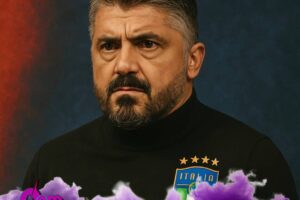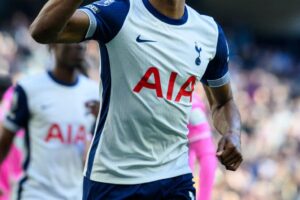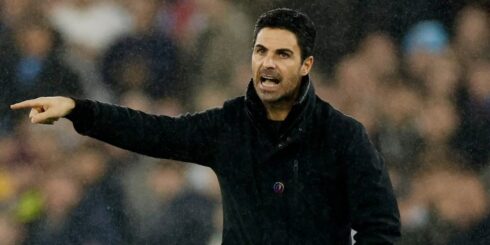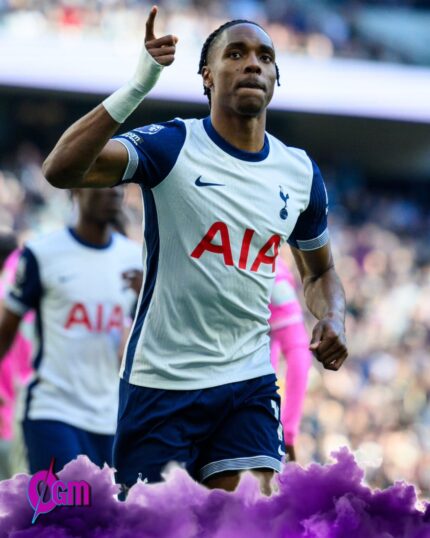Arsenal manager Mikel Arteta has built a reputation for meticulous planning, yet his failure to address Arsenal’s most glaring weakness – the lack of a clinical striker – has left the team vulnerable. The FA Cup third-round penalty shootout loss to Manchester United followed closely on the heels of a 2-0 defeat by Newcastle United in the Carabao Cup semi-final first leg. These losses are painful reminders of the consequences of neglecting Arsenal’s attacking needs.
Despite rumors linking Arsenal to proven goalscorers such as RB Leipzig’s Benjamin Sesko and Sporting’s Viktor Gyokeres, the summer transfer window saw no decisive action. Instead, Arteta prioritized defensive and midfield reinforcements, spending a combined £74.6 million on Riccardo Calafiori and Mikel Merino. The last-minute loan signing of Raheem Sterling, who has contributed just one goal in 12 games, appears to have been a desperate gamble. This miscalculation has left Arsenal relying on players like Kai Havertz, who has struggled to adapt to a striker role, missing key opportunities in recent matches.
A Blunt Offensive Edge Exposed
Arsenal’s lack of firepower was glaringly evident in their past two matches. Against Newcastle, the Gunners managed 23 shots but hit the target only three times. Against Manchester United, they registered 26 shots, with just seven on target, despite dominating possession and having 55 touches in the opposition penalty area.
The lone goal in both matches came from a deflected shot by defender Gabriel, underlining the team’s reliance on set-pieces. Alarmingly, this lack of potency was exposed against a ten-man Manchester United team, with Arsenal failing to capitalize on their numerical advantage during 59 minutes of play. Arteta’s claim that Arsenal “deserved to win the game by a mile” rings hollow when his team cannot convert opportunities into goals.
Injuries Add to Arsenal’s Troubles
Arsenal’s offensive woes have been compounded by a growing injury list. Bukayo Saka, a vital attacking outlet, remains sidelined alongside his young deputy Ethan Nwaneri. The situation worsened during the Manchester United clash when Gabriel Jesus was stretchered off with a serious injury, leaving Mikel Arteta with even fewer attacking options.
Mikel Arteta’s post-match comments highlighted his concern: “It’s a big worry. He was in quite a lot of pain and had to come off on a stretcher.” With no natural striker to step up, Arsenal’s reliance on set-piece goals – which account for 32% of their total this season – underscores the team’s limited attacking creativity. This vulnerability risks derailing their ambitions in multiple competitions.
Mikel Arteta’s Gamble Backfires
Mikel Arteta’s decision to strengthen areas other than the frontline now looks like a critical error. The numbers tell the story: Arsenal trail Premier League leaders Liverpool by six points, having played one game more. Their exit from the FA Cup and uphill battle in the Carabao Cup further highlight the consequences of neglecting their striking needs.
Even set-piece coach Nicolas Jover, celebrated with a mural outside the Emirates Stadium, cannot mask Arsenal’s deficiencies. While set-pieces have provided crucial goals, Mikel Arteta’s admission after the FA Cup loss is telling: “The ball has to go in the net, then you have to batter the opponent. That’s the reality.” Without a reliable finisher, Arsenal’s season risks becoming a story of missed opportunities and unfulfilled potential.
Arsenal’s Striker Crisis: Walcott and Richards Weigh In
Former Arsenal and England forward Theo Walcott has joined the growing chorus of voices highlighting Arsenal’s need for a reliable striker. Speaking to BBC Sport, Walcott lamented the team’s lack of firepower, stating, “Arsenal need a striker at this time because it would have been a completely different story.” He emphasized the drastic transformation in Arsenal’s attacking line, which has shifted from being an exhilarating force to a stagnant presence at Emirates Stadium.
Walcott’s concerns are echoed by Micah Richards, who told Match of the Day that Arsenal’s quest for silverware hinges on securing a quality centre-forward. “The difference between Arsenal winning the league or winning these ties is just a centre-forward,” Richards asserted. This sentiment underscores the urgency facing Arsenal, especially as they struggle to convert opportunities into goals during pivotal matches.
January Transfer Challenges and Mikel Arteta’s Predicament
Arsenal manager Mikel Arteta’s situation has grown increasingly dire following a bleak injury update on Gabriel Jesus, the club’s leading striker. With the January transfer window posing limited options, Arsenal’s search for reinforcements appears fraught with obstacles. The club missed out on RB Leipzig’s Benjamin Šeško, who recently signed a long-term deal, and Coventry City’s Viktor Gyökeres is already attracting interest from Europe’s elite clubs.
Moreover, Newcastle’s Alexander Isak, who scored a stunning goal against Arsenal at the Emirates, has become an unattainable target. Since his £60 million move from Real Sociedad in 2022, Isak’s market value has skyrocketed, leaving Newcastle fans confident his price tag has doubled. Meanwhile, Arsenal’s tally of 39 goals in the Premier League—only eight fewer than Liverpool and three behind leaders Tottenham—reflects their reliance on collective efforts rather than a standout striker. However, as Arsenal painfully discovered in their recent clashes with Manchester City, success in trophy pursuits often hinges on the slimmest of margins, making their need for a clinical striker all the more pressing.














